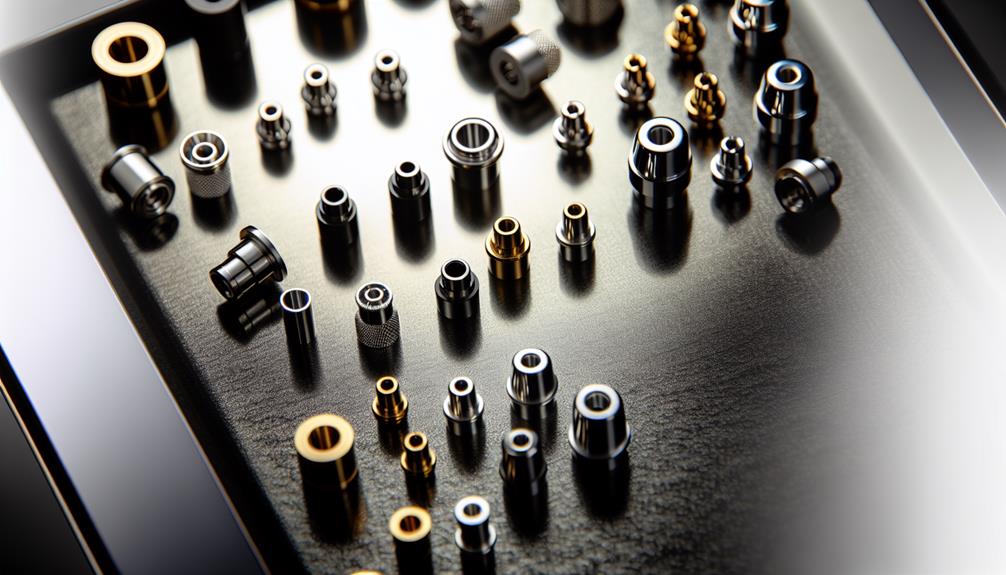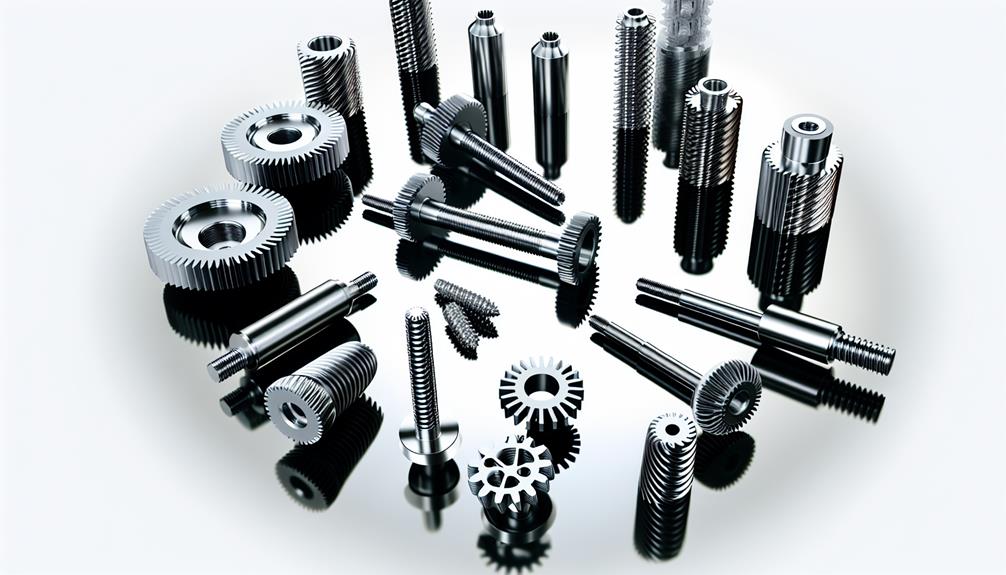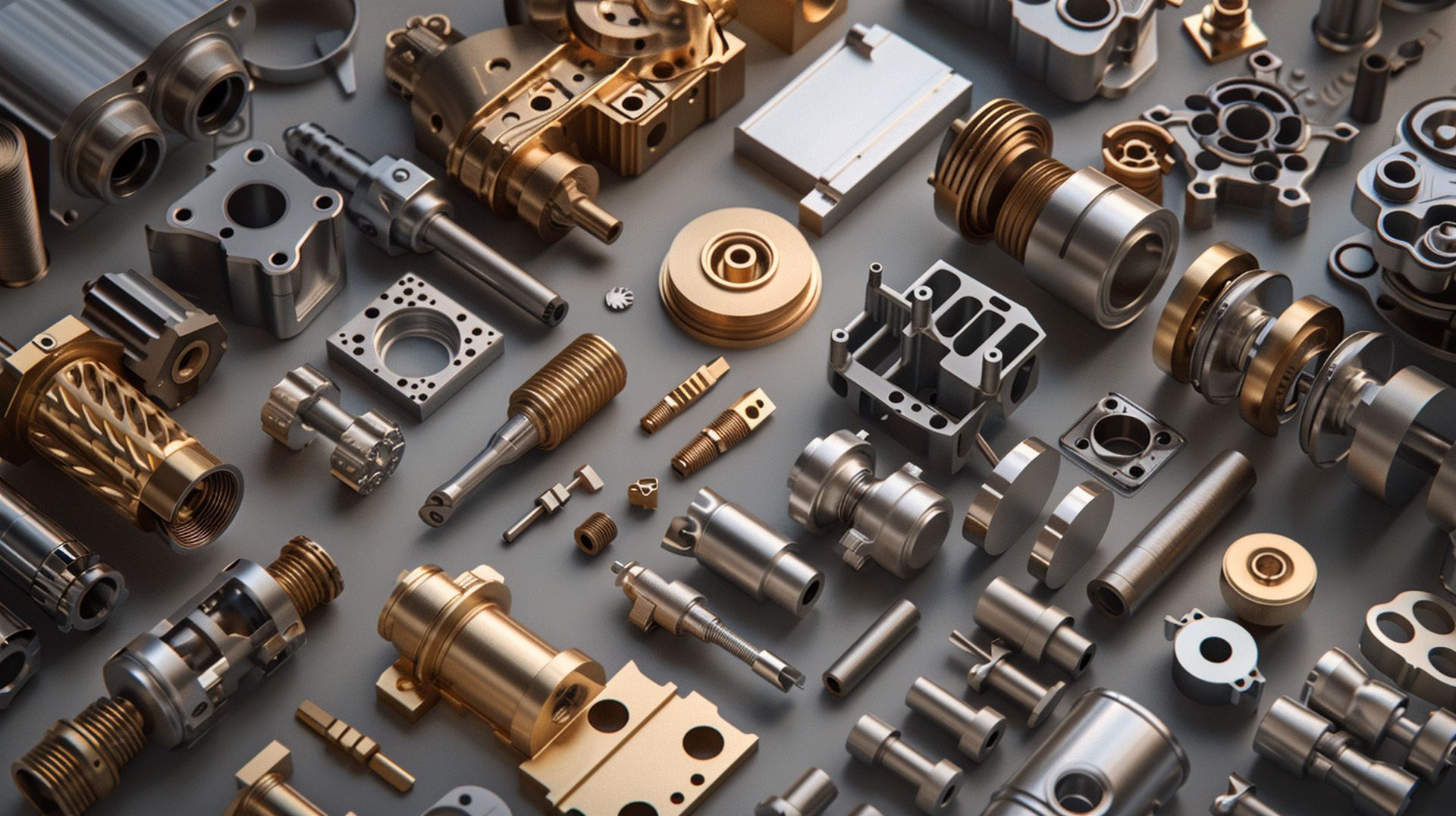Guide to Screw Wholesale Market
In navigating the intricate landscape of the screw wholesale market, one finds a myriad of options and considerations. This guide aims to provide an objective and impersonal analysis of the market, shedding light on various aspects such as screw types, recommended purchases, and factors to consider when making selections.
By examining materials and coatings used in manufacturing screws, this comprehensive overview equips readers with the knowledge necessary for informed decision-making in any industrial application.
Key Takeaways
- Wholesale buyers, such as contractors and manufacturers, rely on a steady supply of quality screws.
- Demand for wholesale screws is driven by various sectors, including construction and manufacturing.
- Retailers and distributors also depend on wholesale purchases to meet customer demands.
- Meeting production or project requirements efficiently is a crucial factor in the demand for wholesale screws.
1. Tapes of Market Wholesale Screw
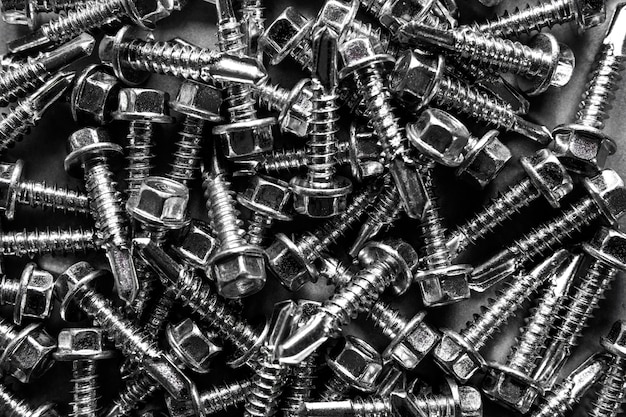
The availability and variety of tapes in the wholesale market for screws can vary significantly. Tapes play an essential role in the packaging and transportation of screws, ensuring their safety and preventing damage during transit. Moreover, tapes also serve as a means of identification and categorization of different types of screws, aiding in efficient inventory management. The market offers a wide range of tape options specifically designed for screw packaging, including adhesive tapes, labeling tapes, and protective tapes.
Adhesive tapes are commonly used to seal screw containers securely. They provide a strong bond that prevents accidental opening or spillage during handling and transportation. Additionally, adhesive tapes can be customized with printed information such as brand logos or product details for branding purposes.
Labeling tapes are another crucial component in the wholesale market for screws. These specialized tapes feature clear labeling areas where vital information about the screw type, size, quantity, or any other relevant specifications can be written or printed. This ensures easy identification and quick access to specific screw types when needed.
Protective tapes are designed to safeguard screws from scratches or other physical damages that may occur during storage or transportation. These durable films act as a protective layer on top of the containers or individual screws themselves.
With an understanding of the various tape options available in the wholesale market for screws, it is now important to explore further into the realm of screws themselves - their uses and applications across different industries.
2. Screws and Their Uses

Fasteners such as screws serve a variety of purposes in construction and manufacturing industries. These small, cylindrical objects are designed to hold materials together by creating a strong and secure connection. Screws are commonly used to fasten objects to walls, floors, or other surfaces, providing stability and support. They can also be used for joining two or more pieces of material together or for attaching components to larger structures.
One of the key advantages of using screws is their versatility. With different types of heads, threads, and lengths available, screws can be customized to meet specific requirements. For example, flathead screws are ideal for applications where a flush surface is desired while pan head screws provide greater resistance against stripping. Additionally, different thread patterns offer varying levels of grip and holding power.
When considering what type of screw to purchase, factors such as the materials being fastened together and the intended application should be taken into account. Choosing the right screw is crucial to ensure proper installation and long-lasting durability. In the subsequent section about 'what are the best screws to buy?', we will explore various factors that influence this decision-making process in order to make an informed choice when purchasing screws for construction or manufacturing purposes.
3. What Are the Best Screws to Buy?

To make an informed choice when purchasing screws for construction or manufacturing purposes, it is important to consider various factors that influence the decision-making process.
One of the key considerations is the material of the screw. Different materials have different properties and strengths, which can impact their suitability for specific applications. For example, stainless steel screws are highly resistant to corrosion and are often used in outdoor or marine environments where exposure to moisture is a concern. On the other hand, brass screws are known for their aesthetic appeal and are commonly used in decorative applications.
Another factor to consider is the type of head on the screw. Common types include flat-head, round-head, pan-head, and countersunk head screws. The choice of head type depends on factors such as appearance preferences and whether flush installation is desired.
In addition to material and head type, it is also essential to consider the thread type of the screw. Popular thread types include wood threads, machine threads, self-tapping threads, and sheet metal threads. Each thread type serves a specific purpose based on its design characteristics. For instance, wood threads have a coarser pitch compared to machine threads and are designed specifically for use in wooden surfaces.
Considering these factors will help buyers identify the best screws for their intended application needs while taking into account important considerations like durability, aesthetics, and functionality.
4. Uses of Market Wholesale Screws

Understanding the diverse applications and contexts in which screws are utilized can provide valuable insight into the demand for wholesale purchases.
Screws are ubiquitous in various industries, ranging from construction to manufacturing. In construction, screws are used extensively for fastening materials such as wood, metal, and plastic. They play a vital role in holding structures together and ensuring their stability. Similarly, in manufacturing processes, screws find applications in assembling products like furniture, electronics, and machinery.
Moreover, screws are also employed in automotive industries for securing components and providing structural support. Additionally, they serve crucial functions in the aerospace sector by facilitating aircraft assembly and maintenance.
The demand for wholesale screw purchases is driven by the need for a steady supply of these essential fasteners across different sectors. Wholesale buyers such as contractors, manufacturers, retailers, and distributors require a reliable source of quality screws to meet their production or project requirements efficiently.
Considering the diverse range of applications where screws are utilized underscores the importance of understanding what to look for when buying them. By considering factors such as material composition, size compatibility with intended use cases, thread type (coarse or fine), head type (flat-head or pan-head), and corrosion resistance properties among others; buyers can ensure that they acquire suitable screws that align with their specific needs without compromising on quality or performance standards.
5. What to Look for When Buying Screws?

An important consideration when purchasing screws is to carefully assess their material composition, size compatibility with intended use cases, thread type (coarse or fine), head type (flat-head or pan-head), and corrosion resistance properties. These factors play a crucial role in determining the effectiveness and longevity of the screws in various applications.
To ensure that you make an informed decision, here are three key aspects to look for when buying screws:
Material Composition
Different materials offer varying levels of strength and durability. Common options include stainless steel, brass, zinc-plated steel, and aluminum. Consider the specific requirements of your project to select the most suitable material.
Size Compatibility
Screws come in various sizes, such as length and diameter. It is essential to choose screws that match the thickness of the materials being fastened together to ensure optimal performance.
Corrosion Resistance
Depending on the environmental conditions where the screws will be used, selecting corrosion-resistant options can prevent rusting and degradation over time.
6. Consideration for Buying the Right Market Wholesale Screw & Industrial Fasteners

When purchasing industrial fasteners, it is important to carefully consider factors such as material composition, size compatibility, and corrosion resistance to ensure optimal performance in large-scale projects.
Material composition plays a crucial role in determining the strength and durability of the fasteners. Common materials used for industrial screws include stainless steel, carbon steel, and alloy steel. Stainless steel offers excellent corrosion resistance and is suitable for applications where moisture or chemicals are present. Carbon steel is typically less expensive but may require additional coatings or treatments to prevent rusting. Alloy steel provides high strength and toughness, making it ideal for heavy-duty applications.
Size compatibility refers to selecting fasteners that fit properly with other components in the project. It is essential to consider the thread type (such as metric or imperial) and diameter when choosing screws for a specific application.
Corrosion resistance is another critical factor to consider when purchasing industrial fasteners. Exposure to harsh environments can lead to corrosion, which weakens the integrity of the fastener. Coatings such as zinc plating or hot-dip galvanization can provide an extra layer of protection against corrosion.
Considering these factors will ensure that market wholesale screws meet the requirements of large-scale projects while minimizing potential issues related to material compatibility, size mismatching, and premature failure due to corrosion.
7. Materials & Coatings for Market Wholesale Screw

The selection of appropriate materials and coatings for industrial fasteners is crucial in ensuring their durability, strength, and resistance to corrosion. When it comes to market wholesale screws, there are several options available that cater to different industrial applications.
Here are three important considerations for choosing the right materials and coatings:
Material composition
The choice of material depends on the specific requirements of the application. Common materials include stainless steel, carbon steel, alloy steel, and brass. Each material has its own unique properties such as strength, ductility, and resistance to corrosion.
Coating options
Coatings provide an additional layer of protection against corrosion and improve the overall performance of screws. Some commonly used coatings include zinc plating, galvanizing, nickel plating, and ceramic coatings. The selection of coating depends on factors like environmental conditions and desired level of corrosion resistance.
Compatibility with other components
It is important to consider the compatibility between the screw material/coating and other components in the assembly or structure. Different metals can react with each other causing galvanic corrosion or compromising the mechanical integrity.
8. Market Wholesale Screw for Any Industrial Application
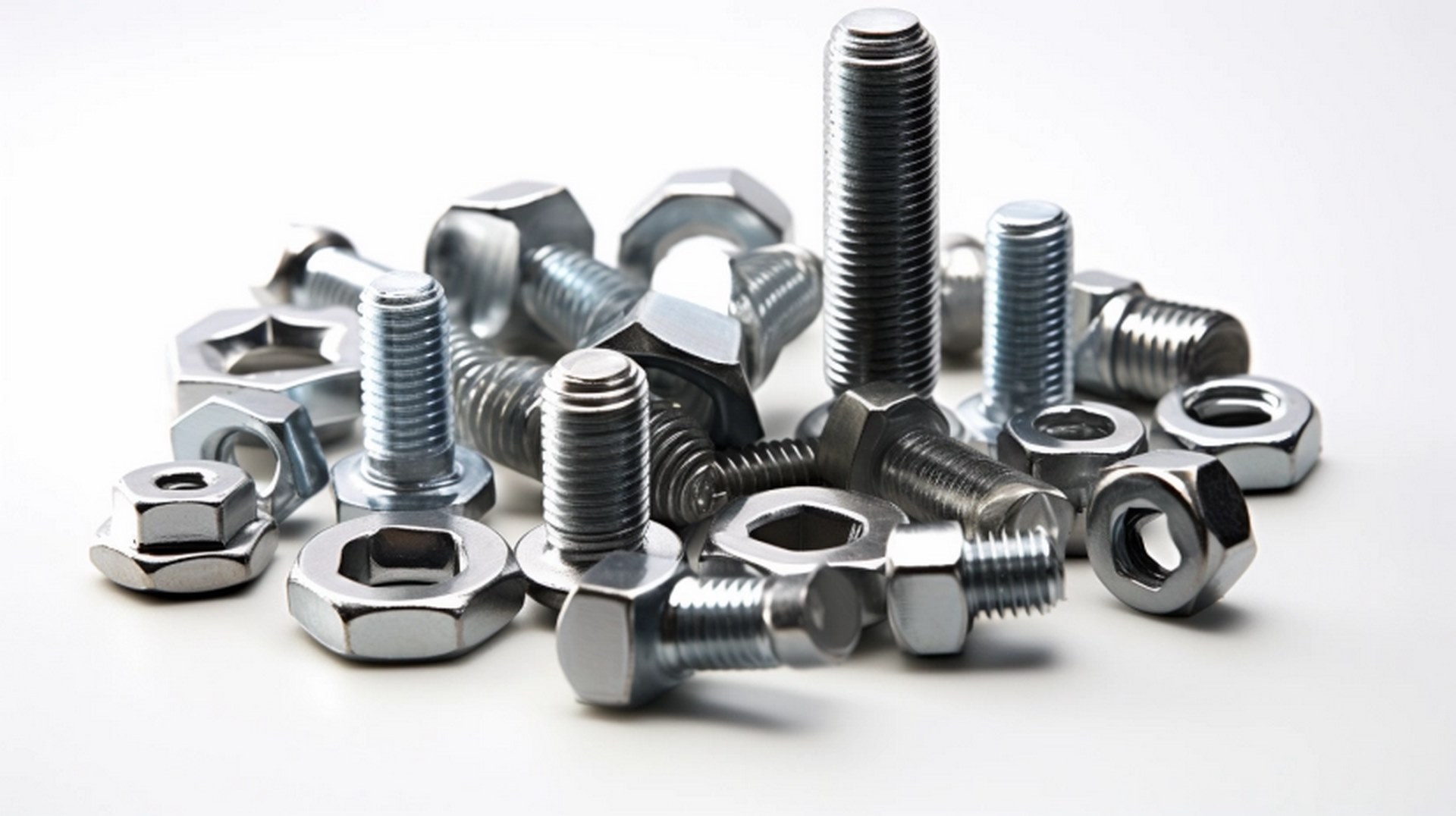
Careful consideration of the specific requirements, environmental conditions, and compatibility with other components is essential in selecting appropriate materials and coatings for industrial fasteners.
Industrial applications often involve harsh operating conditions, such as high temperatures, corrosive environments, or heavy loads. Therefore, the choice of materials and coatings for market wholesale screws becomes crucial to ensure their durability and performance.
When selecting materials for industrial fasteners, factors such as strength, corrosion resistance, and heat resistance need to be taken into account. Common material choices include stainless steel, carbon steel, and alloy steels. Stainless steel offers excellent corrosion resistance but may lack the necessary strength for certain applications. Carbon steel provides good strength but is more susceptible to corrosion. Alloy steels offer a combination of both strength and corrosion resistance.
In addition to material selection, appropriate coatings are also important to enhance the performance and lifespan of industrial fasteners. Coatings can provide protection against corrosion or improve lubricity during installation. Common coating options include zinc plating, hot-dip galvanizing, mechanical plating, and organic coatings like epoxy or nylon.
Furthermore, considering the compatibility of fastener materials with other components is critical to avoid galvanic corrosion or other forms of unwanted reactions between dissimilar metals.
Overall, careful consideration of specific requirements along with knowledge about different materials and coatings is vital in selecting market wholesale screws that will meet the demanding needs of various industrial applications.
Frequently Asked Questions
How Do I Find the Location of the Wholesale Screw Market?
To locate the wholesale screw market, one can employ various strategies such as conducting online research, consulting local business directories, or seeking recommendations from industry professionals. These methods facilitate the identification of the market's precise location and enable a successful visit.
Are There Any Specific Safety Precautions to Take When Using Screws?
Specific safety precautions should be followed when using screws to minimize the risk of accidents or injuries. These may include wearing protective eyewear and gloves, ensuring proper installation techniques, and using the correct type and size of screws for the intended application.
Can I Get a Discount if I Buy Screws in Bulk From the Wholesale Market?
Wholesale markets offer discounts for bulk purchases, including screws. The availability and extent of discounts vary depending on the specific market and supplier. It is advisable to research and compare prices before making a purchase.
Are There Any Warranties or Guarantees Offered on the Screws Purchased From the Wholesale Market?
There are warranties and guarantees offered on screws purchased from the wholesale market. These ensure that the screws meet certain quality standards and provide protection against defects or damage.
Are There Any Additional Services Provided by the Wholesale Market, Such as Screw Customization or Special Orders?
The wholesale market offers additional services, including screw customization and special orders. These services cater to the diverse needs of customers, allowing them to obtain screws tailored to their specific requirements.
Mikehardware- your trusted screws&fasteners manufacturer
In conclusion, this guide has provided a comprehensive overview of the market wholesale screw industry.
From understanding the different types of screws and their uses to identifying the best screws to buy, buyers can now make informed decisions when purchasing industrial fasteners.
By considering factors such as materials and coatings, one can ensure that they select the right screw for any industrial application.
With these insights, individuals can navigate the wholesale market with confidence and find the perfect screw for their needs.
With 10 years of professional CNC product customization, Mikehardware can offer you various high-quality fasteners!

